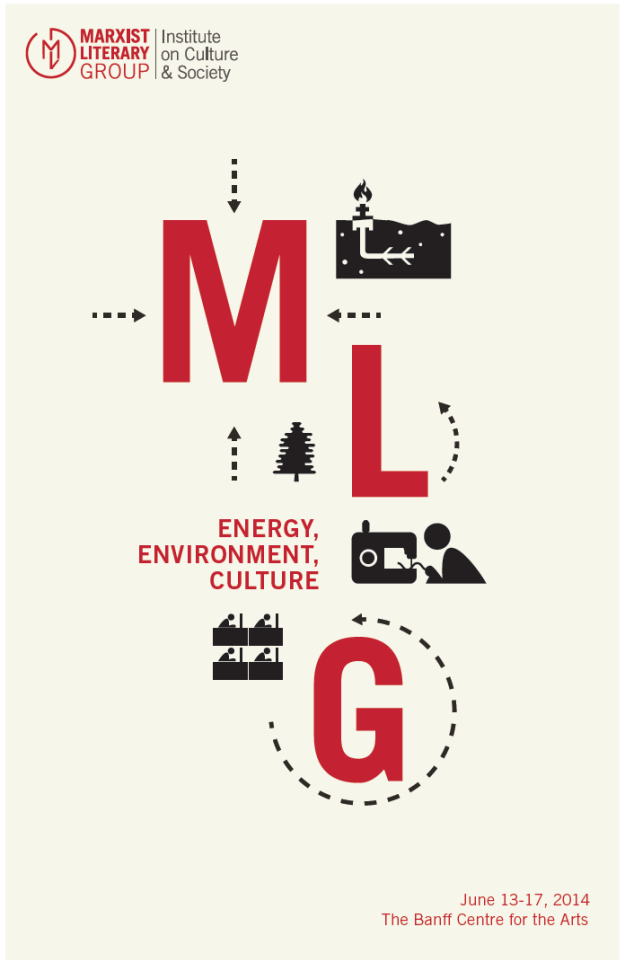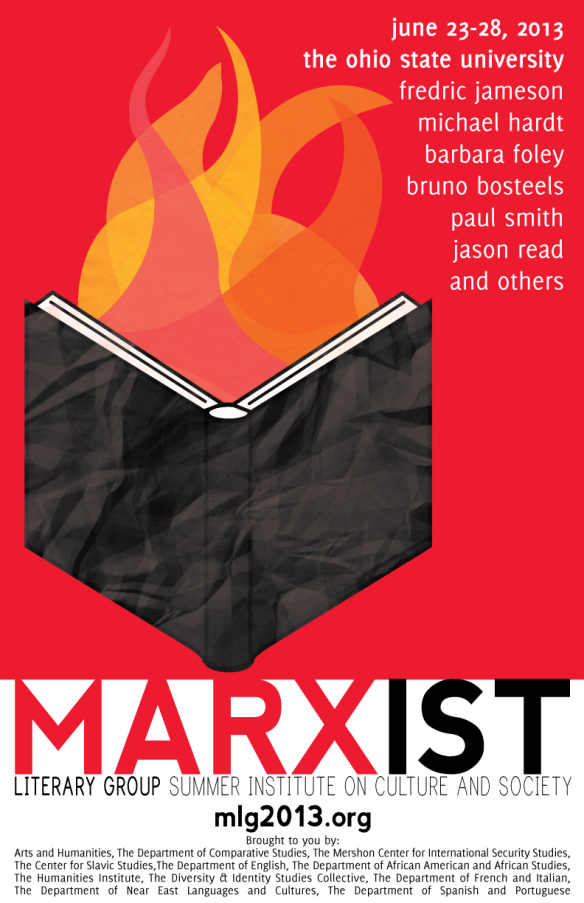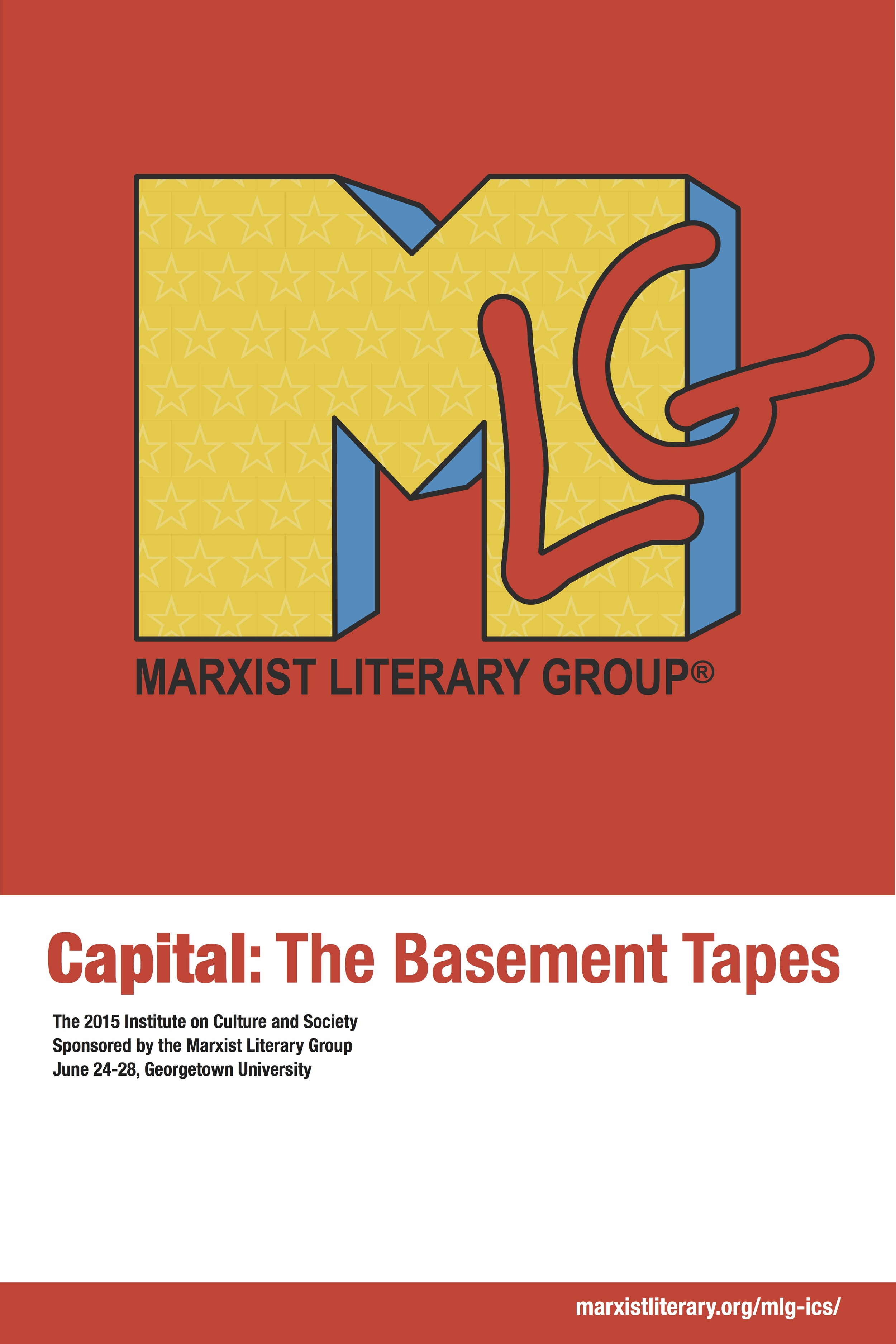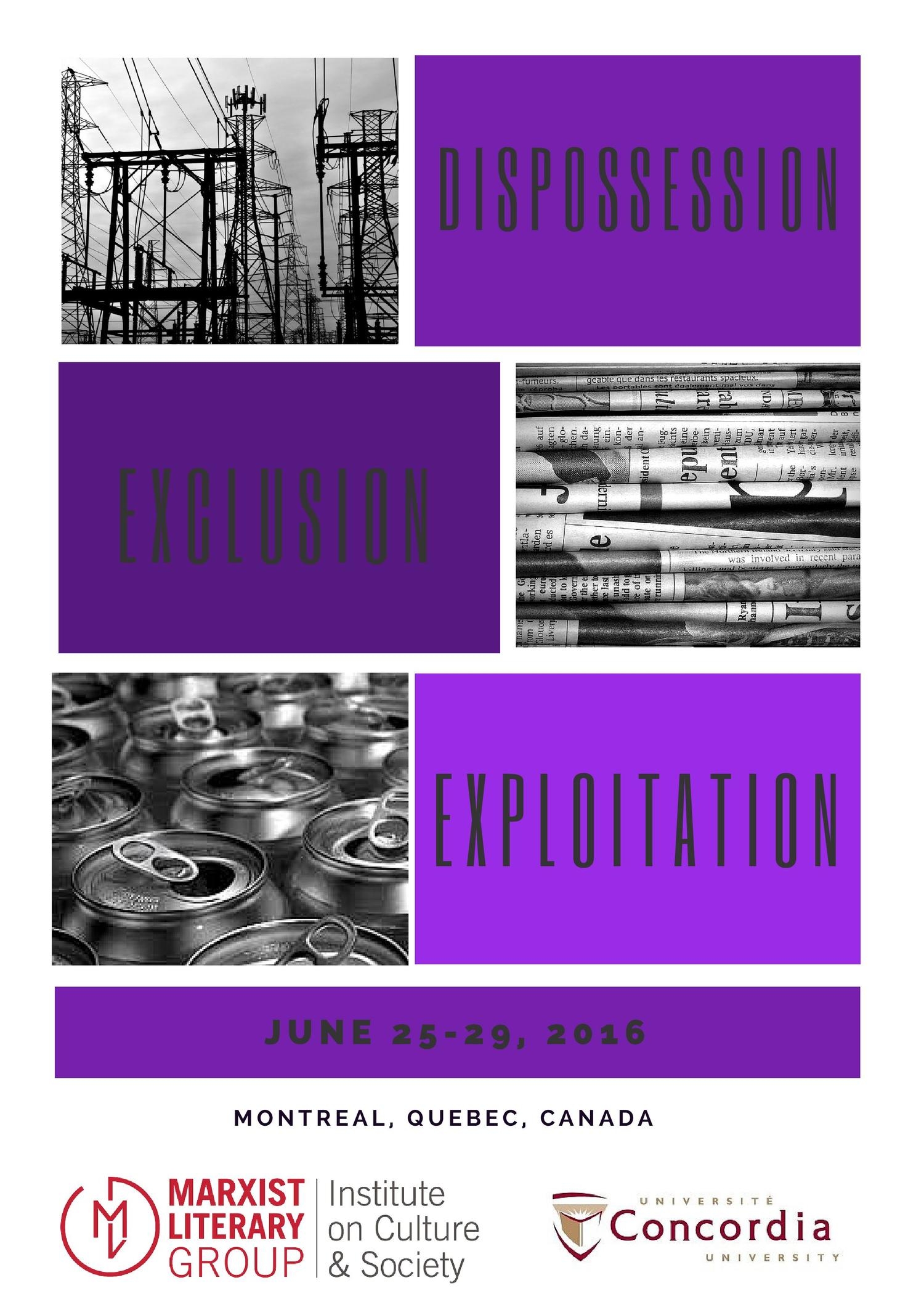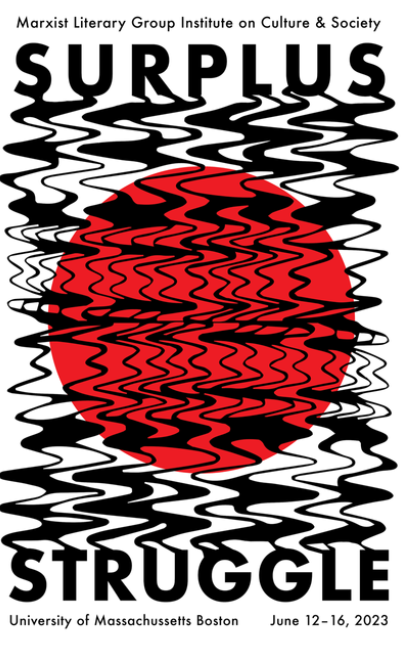The Marxist Literary Group’s Institute on Culture and Society 2026
June 16-20
the university of california, Berkeley
THEORY AND PRACTICE AT SQUARE ONE
Abstracts should be sent to mlgics2026@gmail.com on or before January 31st, 2026
The MLG Summer Institute on Culture and Society invites proposals from its current and future members for participation in its 2026 annual meeting. Proposals on all topics of relevance to Marxist theory and practice are welcome, with priority given to proposals that critically engage this year’s highlighted theme.
Today, Marxism is once again confronted by a world descending into crisis. And yet, having lost its function as the accumulated vocabulary of practical activity and self-critique of an international emancipatory movement, Marxism has for the most part become one more academic language for speculation and reflection on what reportedly has happened elsewhere, to others. If this separation of theory and practice has impoverished both, perhaps it also affords Marxism an opportunity—the opportunity that arises from finding itself at square one.
For theory, the view from “square one” compels us to (re)think collectively what is Marxism, both past and present, and in places beyond and outside where it became “Western.” Leaving behind the methodological Orientalisms that have partly contributed to the sharp distinction between Western academic Marxism and communism, we must critically reckon with twentieth century “actually existing socialisms” and their different but connected trajectories into our current disorderly yet singular context. What is there to be learned from the social experiments of twentieth century “Eastern Marxisms”—in Asia, the Soviet Union and Eastern Europe and Latin America—that are the subject of new historiographic recoveries? How might marketization or neoliberalization in postsocialist regions be theorized in relation to the concept of capital? What are the conditions and prospects for the renewal of Marxist theory today? What are examples of art and literature’s contribution to that renewal? How might tearing down the East/West walls within Marxism contribute to the task of reuniting Marxist aesthetic theory with Marx’s critique of political economy?
For practice, the view from “square one” involves reflecting on the long distance that separates everyday organizing from any intervention on this global terrain. In this context, Marxism's theoretical preoccupation with the relationship between global totality and the inner categories of political economy seems to rob Marxism of its immediate salience: organizers know it won’t get you anywhere to spout off about surplus value at a tenant meeting or picket line; intellectuals and academics, pressured to orient their theory to the world as it is, have every reason to regard Marxological debate as a scholastic maze best left unentered. When no immediate practical benefits follow from the invocation of Marxism in our individual activity, what is Marxism for? What kind of concept is it? How does one use it? Where can Marxist theory find refuge, what new institutions might be possible, amidst the precarity awaiting Marxist intellectuals today on the other side of the postwar left’s “long march through the institutions”? How might renewed critical attention to the particular separations of theory and practice today—whose manifestations are geographical, historical, and cultural as much as organizational—contribute to the project of realizing Marxism, once again, on the surface of society?
ICS Reading groups
Our world is one in which Marxism has disappeared; still, Marx’s theory of value offers insight into even this immediate reality. Where Capital I showed us the categories on which a constituted workers’ movement would rest, Capital III shows us the categories of the world in which such a movement has failed. In that world—ours—organized struggle over value does not appear on the surface of society. Nevertheless, history as surface is where we live. Vol. III would thus have us take seriously capital’s outward expressions, forms that are constantly changing and have a socially objective relation to capital’s reproduction. It is in this sense that Beverley Best suggests that humanists have much to draw from Vol. III for a value theory of ideology, wherein appearances are not illusions but partial truths.
As a cornerstone of the MLG Institute, the reading groups this year will take on the vital role of helping us work through Capital III. Our hope is that participants will take the opportunity to read together throughout the year, convening at the conference to pool our resources in service of a strong, collective understanding of Marx’s lesser-studied yet essential volume. Individual reading groups should focus on an excerpt of no more than fifty pages (which can be entirely from Vol. III, other work that illuminates or is inspired by Vol. III, or some combination thereof). Reading group conveners should prepare to lead a seminar-style discussion, not deliver lengthy presentations. Some suggestions for best pedagogical practice will be sent out ahead of the conference. If you are interested in being connected with a reading group (or you have an existing group willing to take on some new members!) please fill out our interest form, and conference organizers will reach out as soon as possible.
papers, panels, and roundtables
We especially welcome proposals for papers, panels and roundtables on any of 2026’s three thematic poles: Eastern Marxisms, contemporary organizing, and value theories of ideology.
You may submit a proposal for one of the following: a paper, a panel, a roundtable, or a reading group. To maximize participation, we will only offer each person one slot on the program. Panel submissions should be for 4–5 people; roundtable submissions should be for 5–8; reading groups should be 2–8. Please commit to having all listed panel members attend the conference.
Suggested themes include (but are not limited to):
Value, price and profit since the “long downturn”
Postagrarian and postindustrial: the unity and separations of global unemployment today
Marxism/Maoism in contemporary China
Post-Soviet Left formations and contributions to Marxist theory
Imperialism and the national question today
State socialisms and the critique of political economy
Self-management and social property in socialist Yugoslavia
Second World anti-colonialisms and indigeneity
Second and/or Third World feminisms reconsidered
Global Maoisms and the long sixties
Marxist reassessments of the cultural turn
Value-Form Theory and prospects for historical formalism
Value, price, and gender
Japanese Marxism and degrowth
Critical political economy of the “Asian developmental state”
Commercial capitalism, global logistics and class struggle in the Asia Pacific
Chinese capital in Africa, Latin America and the Middle East
Race, class and environment in Southeast Asia
Caste and the agrarian question in South Asia
“Trade union consciousness,” “The Fragment on Classes,” and class as ideology
Historicizing the “Rank and File Strategy”
The Exoteric Marx
Submission Guidelines
Proposals for individual papers, panels, roundtables, or reading groups should be sent to mlgics2026@gmail.com by January 31st, 2026. If you would like to be connected to others interested in reading Capital Volume III, please fill out this form by September 30th, 2025. Guidelines for conference participation are as follows:
Proposals for panels, reading groups, and roundtables should provide a 300-word abstract; proposals for panels should also include a 100-word description of each paper. Proposals for individual papers should be 200 words long.
Please include your academic affiliation (if applicable) and job title (if applicable) in your submission.
Our expectation at MLG-ICS is that attendees attend as many days and sessions as possible. We hold no concurrent sessions, and the group conversation builds collectively over the course of the week. Every comrade who presents deserves a full audience.
All MLG-ICS conferences are themed, but we will consider proposals on all aspects of Marx and Marxism.
Panel submissions should be for 4-5 people; roundtable submissions should be for 5-8; reading groups should be for 2-8. Please commit to having all listed panel members attend the conference.
MLG will be in person only. Please note that we will not be able to accommodate requests for remote participation.
Accommodations
Accommodations for all attendees will be available at a reduced rate on UC Berkeley’s campus. Details will be posted ahead of the submission deadline.
Previous Institute Posters
